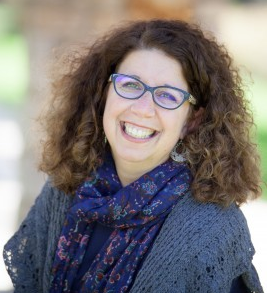 By Michelle Van Loon http://www.michellevanloon.com and http://www.MomentsAndDays.org
By Michelle Van Loon http://www.michellevanloon.com and http://www.MomentsAndDays.org
A group of academics gather for a theology conference. Papers and panels have been vetted in advance of the event, and conferees move from session to session listening to presentations. There are books to be purchased, break-out sessions and dinners and meetings to attend. After the conference, the academics head back to their work in universities, colleges, Bible schools, and churches. They carry home with them some food for thought, an armload of new books, and perhaps a few new professional connections.
In the case of the Evangelical Theological Society (ETS), I would like to suggest that some conferees might be bringing something more than these things home with them.
Scot recently posted some comments about a letter penned by past ETS president Stan Gundry addressing the politicking that has taken place within the organization in recent years around the subject of gender:
When the history of late 20th and early 21st Century evangelicalism is finally written, one of the most embarrassing stories will be the way male leaders behaved and sought to control all voices — mostly after meeting behind closed doors, in seeking to control who gets published and where, and who was chosen to speak so that a who-under-control would say what-was-controlled. Often those who are in control are taking the least amount of heat for this embarrassing way of powermongering.
Stan Gundry has now sent an alarm to ETS that the resolutions contradict what ETS is about and what its Doctrinal Basis is designed to do and not to do. He has suggested, too, that there is a complementarian conspiracy at work.
(Full text of Scot’s post, which includes the full text of Stan Gundry’s letter can be found here.)
I am not a professional theologian. I’ve never been to ETS. I am, however, an interested layperson who has for many years read the work of some of the theologians who are members of ETS. I have some acquaintance with a few theologians as I once worked at TIU/TEDS as a staff member, and have been blessed to attend some seminary classes at Northern. I write for the Church, worship in a local congregation, and connect with other believers when I have the opportunity to speak in other local churches.
As a layperson, I wish I could remind conferees at gatherings like ETS that what happens at these events doesn’t stay at these events. I’ve been the glad student of teaching shaped by the kinds of iron-sharpening-iron experience theologians have had at ETS over the years. I’m grateful there are spaces in this world where academics can gather in order to learn, affirm, and challenge one another. This kind of exchange is good for all of us in the church.
But I hear LOUD alarm bells as I’m reading about the antics Gundry describes in his letter. This stuff trickles down into the local church, too – with decidedly non-academic speed. The kind of backroom politicking, deck-stacking, and fear masquerading as doctrinal purity have more in common with a political convention than they do with an organization devoted to developing grounded, courageous theologians with the maturity to handle disagreement about non-essentials.
I know for some theologians, complementarianism has become creedal-level dogma, an essential linked to the inerrancy debates of a generation ago. Those who don’t toe the comp line risk being branded at best as people entertaining flabby theology, and at worst, candidates for a theological basket of deplorables.
Academic training and non-denominational organization should create a welcoming place for lively disagreement within orthodox Christian parameters, but as I’ve followed the ETS issue from the pew over the last couple of years, my heart is heavy for all of us in the Evangelical world. Laypeople like me need more from you, ETS members. We need you to model for us academic inquiry, humility, and the courage not to revert to underhanded machinations in order to filter out all with whom you disagree.
I’m all for theological precision, but if that precision is dictated by backroom power plays within ETS, we are all the weaker for it. That skeezy stuff is the way of bad local church politics, the very thing that has left too many of us in the pews carrying all kinds of wounds and scars.
I’m praying for you, ETS leaders! As you gather this year, please remember that you are influencing the local church in ways that go far beyond the content of the sessions you attend at the conference.





